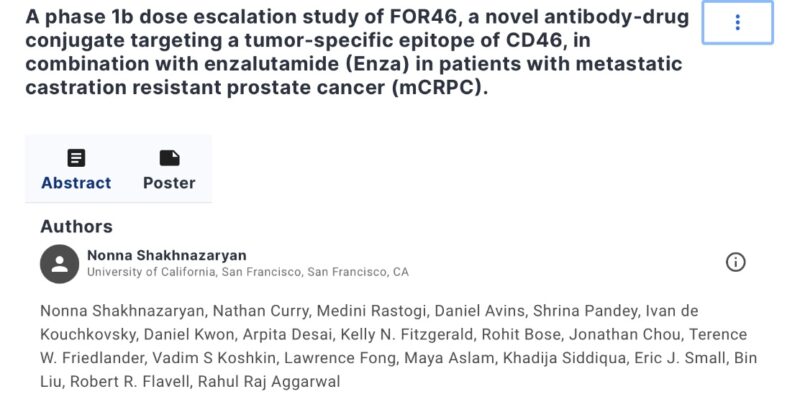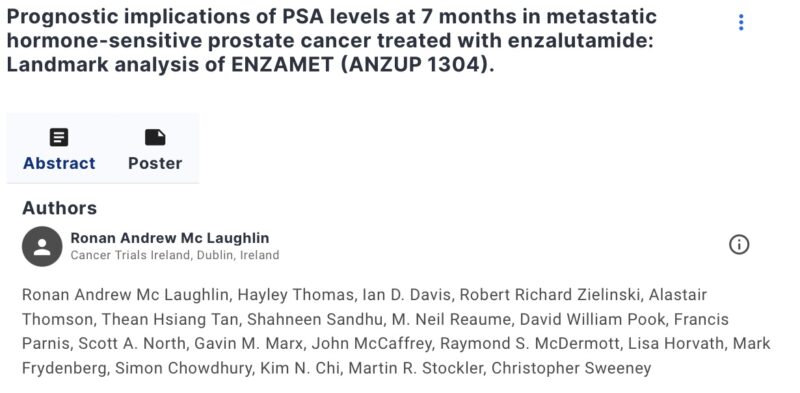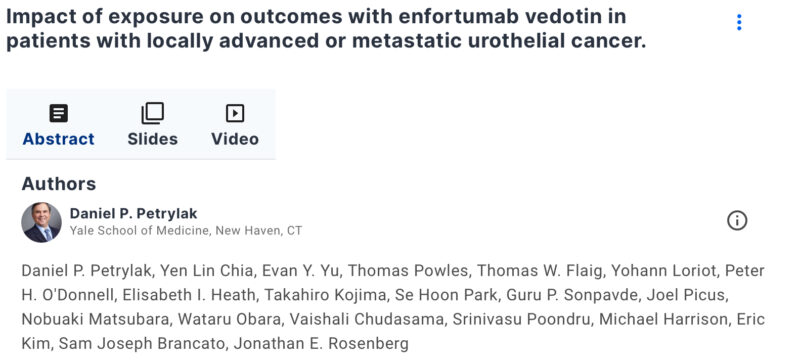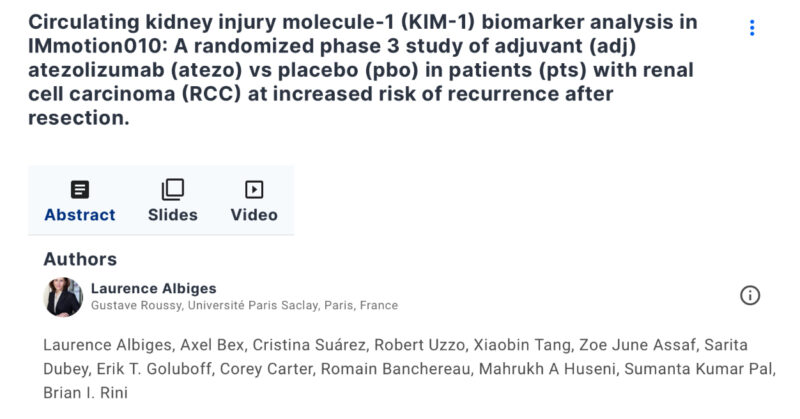Earle Burgess, Genitourinary Medical Oncologist at Atrium Health, Levine Cancer Institute, recently shared posts on LinkedIn:
A phase 1b dose escalation study of FOR46, a novel antibody-drug conjugate targeting a tumor-specific epitope of CD46, in combination with enzalutamide (Enza) in patients with metastatic castration resistant prostate cancer (mCRPC)
“Another interesting drug in development for advanced prostate cancer to watch: FOR46.
FOR46 is an antibody-drug conjugate that binds a tumor-specific epitope of CD46 on prostate cancer cells.
Prelim activity from a phase I study combining FOR46 with enzalutamide in metastatic castrate resistant prostate cancer reported at ASCO24 (abstract 5066):
– 17 patients. Median PSA 43.8.
– Median duration of treatment 5 months.
– 13/16 (81%) with PSA response. Stable disease > 6 months in 41%.
Looks encouraging.”
Autors: Nonna Shakhnazaryan, Nathan Curry, Medini Rastogi, Daniel Avins, Shrina Pandey, Ivan de Kouchkovsky, Daniel Kwon, Arpita Desai, Kelly N. Fitzgerald, Rohit Bose, Jonathan Chou, Terence W. Friedlander, Vadim S Koshkin, Lawrence Fong, Maya Aslam, Khadija Siddiqua, Eric J. Small, Bin Liu, Robert R. Flavell, Rahul Raj Aggarwal

Prognostic implications of PSA levels at 7 months in metastatic hormone-sensitive prostate cancer treated with enzalutamide: Landmark analysis of ENZAMET (ANZUP 1304)
“Is it possible to predict which men with newly diagnosed metastatic prostate cancer are likely to respond the best to treatment and live the longest?
Yes.
Depth of PSA response to initial therapy is prognostic of patient outcome.
This has been observed across multiple trials in the front-line setting for metastatic hormone-sensitive prostate cancer.
Here’s the latest: ASCO24 abstract 5079
In the ENZAMET trial (ADT + enzalutamide with or without docetaxel for initial treatment of metastatic prostate cancer), patients who achieved a PSA ≤ 0.2 after 7 months of treatment lived the longest, regardless of the initial disease burden.
I track PSA response depth in everyone I treat.”
Autors: Ronan Andrew Mc Laughlin, Hayley Thomas, Ian D. Davis, Robert Richard Zielinski, Alastair Thomson, Thean Hsiang Tan, Shahneen Sandhu, M. Neil Reaume, David William Pook, Francis Parnis, Scott A. North, Gavin M. Marx, John McCaffrey, Raymond S. McDermott, Lisa Horvath, Mark Frydenberg, Simon Chowdhury, Kim N. Chi, Martin R. Stockler, Christopher Sweeney

Impact of exposure on outcomes with enfortumab vedotin in patients with locally advanced or metastatic urothelial cancer
“Key question for the use of enfortumab vedotin (Padcev) in patients with advanced urothelial (bladder) cancer:
If I have to reduce the dose for side effects in someone who is responding to the drug, will it compromise the tumor response?
Probably not.
That’s what was observed in the phase 3 trial that led to the initial approval of the drug based on analysis reported at ASCO24 (Abstract 4503).
Important information for those who use this drug in practice.”
Autors: Daniel P. Petrylak, Yen Lin Chia, Evan Y. Yu, Thomas Powles, Thomas W. Flaig, Yohann Loriot, Peter H. O’Donnell, Elisabeth I. Heath, Takahiro Kojima, Se Hoon Park, Guru P. Sonpavde, Joel Picus, Nobuaki Matsubara, Wataru Obara, Vaishali Chudasama, Srinivasu Poondru, Michael Harrison, Eric Kim, Sam Joseph Brancato, Jonathan E. Rosenberg

Circulating kidney injury molecule-1 (KIM-1) biomarker analysis in IMmotion010: A randomized phase 3 study of adjuvant (adj) atezolizumab (atezo) vs placebo (pbo) in patients (pts) with renal cell carcinoma (RCC) at increased risk of recurrence after resection
“Any promising biomarkers that may tell us which patients should receive adjuvant immunotherapy after surgical removal of a local kidney cancer?
KIM-1.
ASCO24 abstract 4506:
In a trial of patients who received immunotherapy (atezolizumab) after surgery to lower risk of kidney cancer recurrence, KIM-1 levels:
– predicted immediately after surgery which patients were more likely to recur
– identified over time which patients were likely to recur if KIM-1 blood levels increased
– predicted which patients were more likely to benefit from use of atezolizumab
These observations need to be validated, but future measurement of KIM-1 levels to guide the decision about which patients should receive adjuvant immunotherapy has a lot of potential.
Eager to follow this story as it evolves.”
Autors: Laurence Albiges, Axel Bex, Cristina Suárez, Robert Uzzo, Xiaobin Tang, Zoe June Assaf, Sarita Dubey, Erik T. Goluboff, Corey Carter, Romain Banchereau, Mahrukh A Huseni, Sumanta Kumar Pal, Brian I. Rini

For more information, visit Earle Burgess’ LinkedIn page.


